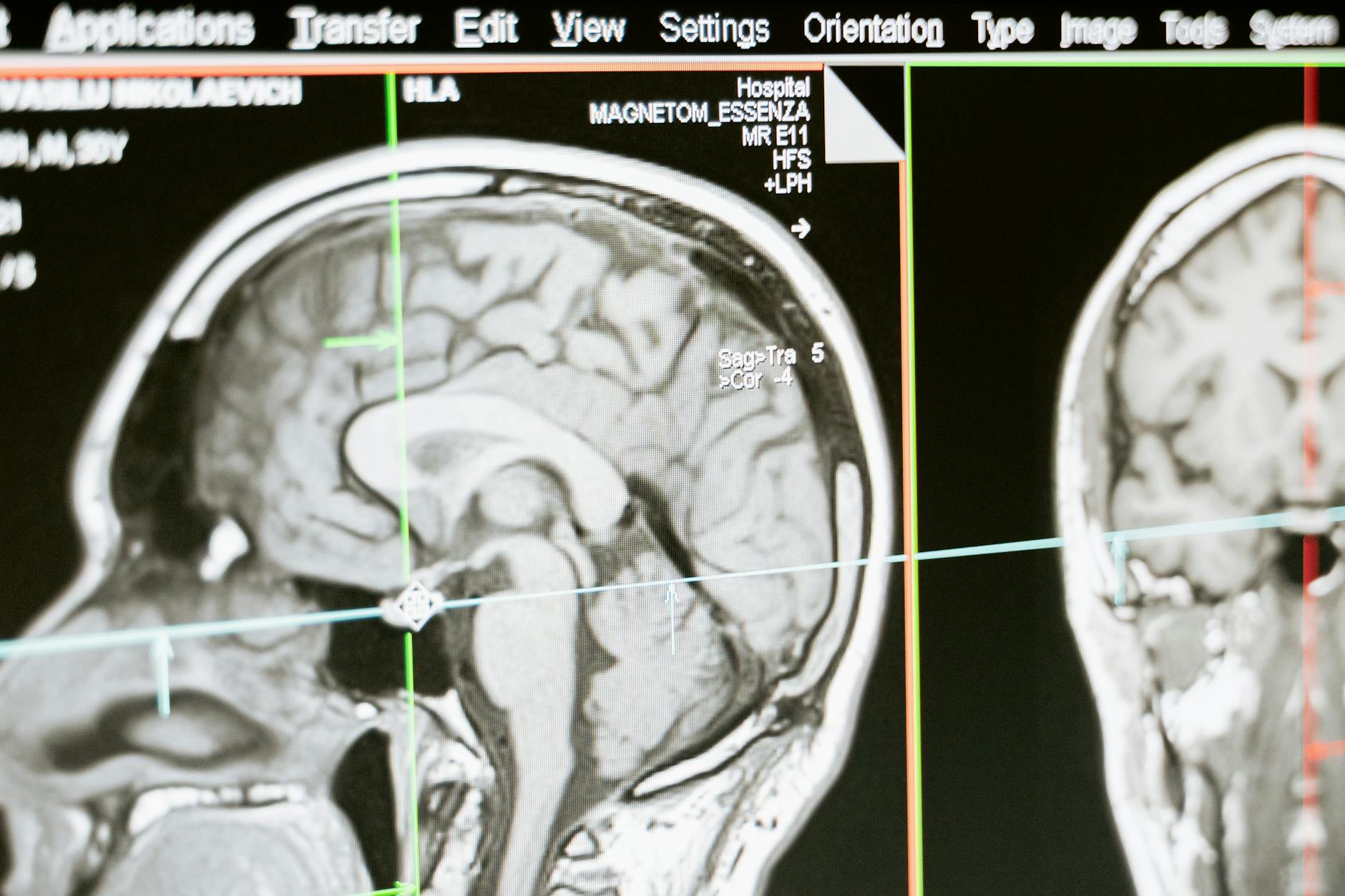Welcome to a world where medicine meets technology in extraordinary ways, shaking up the healthcare industry like never before. This is a world where Artificial Intelligence (AI) isn’t just a buzzword; it’s a game-changer. AI has the power to transform healthcare, making it more efficient, personalized, and effective.
Specifically, we’re exploring how AI can be used in precision medicine. Precision medicine is all about tailoring medical treatment to individual patients. This approach considers each person’s unique genetic makeup, environment, and lifestyle.
With AI, precision medicine takes a giant leap forward. It’s all about leveraging AI’s unique ability to analyze and learn from massive amounts of data. It can draw insights that humans can’t, making it possible to predict and prevent diseases before they happen.
In a nutshell, AI and precision medicine are a perfect match, and they’re set to revolutionize healthcare. So, let’s dive in and discover the future of medicine!
Leveraging AI for Precision Medicine in Healthcare
What is Precision Medicine?
Precision Medicine is an innovative approach to healthcare that takes into account an individual’s unique characteristics, including their genetic makeup, lifestyle, and environment, to tailor medical treatment and prevention strategies. It aims to provide more accurate diagnoses, targeted therapies, and improved patient outcomes.
Defining Precision Medicine in Healthcare
Precision Medicine, also known as personalized medicine, is a paradigm shift in healthcare that moves away from the traditional one-size-fits-all approach. It recognizes that each patient is unique and requires individualized care. By analyzing a patient’s genetic information, biomarkers, and clinical data, healthcare professionals can gain a deeper understanding of the underlying causes of diseases.
Through the use of advanced technologies, such as genomics, proteomics, and metabolomics, precision medicine allows healthcare providers to predict the likelihood of developing certain diseases, identify optimal treatment options, and determine the most appropriate dosage for drugs. This personalized approach enables healthcare professionals to make more informed decisions and deliver targeted interventions, leading to better patient outcomes.
The Potential of Precision Medicine in Improving Patient Care
Precision Medicine holds immense promise for revolutionizing healthcare and improving patient care in several ways:
- Early Detection and Prevention: By analyzing an individual’s genetic predisposition to certain diseases, precision medicine can identify individuals who are at a higher risk of developing specific conditions. This knowledge allows for early detection and preventive interventions, potentially reducing the burden of disease and improving overall health outcomes.
- Tailored Treatment Plans: Precision medicine allows healthcare providers to design personalized treatment plans for patients based on their specific genetic profiles. This targeted approach increases the likelihood of successful treatment outcomes and minimizes the risk of adverse reactions to medications.
- Optimized Drug Development: The application of precision medicine in drug development can lead to more effective and safer medications. By identifying specific genetic markers associated with drug response, pharmaceutical companies can develop drugs that are better targeted to individual patients, maximizing efficacy and minimizing side effects.
- Reduced Healthcare Costs: Precision medicine has the potential to reduce healthcare costs by avoiding unnecessary treatments, minimizing adverse drug reactions, and optimizing the use of healthcare resources. By tailoring interventions to individual patients, precision medicine aims to deliver cost-effective care that is both efficient and effective.
 Aurora Borealis (Photo by Frans van Heerden)
Aurora Borealis (Photo by Frans van Heerden)
In conclusion, precision medicine is a groundbreaking approach that leverages an individual’s unique characteristics to deliver personalized healthcare. By utilizing advanced technologies and analyzing vast amounts of data, precision medicine has the potential to significantly improve patient care, enhance treatment outcomes, and transform the future of healthcare. Stay tuned for more exciting insights on leveraging AI for precision medicine in healthcare.
Leveraging AI in Precision Medicine
The Role of Artificial Intelligence in Healthcare
Artificial Intelligence (AI) has emerged as a transformative force in various industries, and healthcare is no exception. With its ability to analyze vast amounts of data and draw meaningful insights, AI has the potential to revolutionize precision medicine. Precision medicine aims to tailor medical treatment to individual patients by considering their unique genetic, environmental, and lifestyle factors. By leveraging AI algorithms and machine learning, healthcare providers can make more accurate diagnoses, predict patient outcomes, and identify targeted treatment options.
 Photo Of Doctor Checking On Her Patient (Photo by Thirdman)
Photo Of Doctor Checking On Her Patient (Photo by Thirdman)
Applications of AI in Precision Medicine
In the realm of precision medicine, AI can be applied in several critical areas. One such area is genetic analysis. AI algorithms can analyze genetic data to identify genetic variations, mutations, and patterns that may be associated with certain diseases or conditions. This analysis helps healthcare professionals understand the underlying genetic drivers of diseases, enabling them to develop personalized treatment strategies.
Another application of AI in precision medicine is in medical imaging. AI-powered algorithms can analyze medical images such as X-rays, MRIs, and CT scans to detect abnormalities or signs of diseases that may not be visible to the human eye. This technology allows for early detection and more accurate diagnosis of conditions, leading to improved patient outcomes.
Furthermore, AI can assist in drug discovery and development. By analyzing vast amounts of molecular and clinical data, AI algorithms can identify potential drug targets, predict the efficacy of drugs, and even design new molecules with desired properties. This accelerates the drug discovery process, making it more efficient and cost-effective.
 Free stock photo of 3d scanning, 3d ultrasound, anticipation (Photo by MART PRODUCTION)
Free stock photo of 3d scanning, 3d ultrasound, anticipation (Photo by MART PRODUCTION)
Benefits of AI in Precision Medicine
The integration of AI in precision medicine offers numerous benefits to patients, healthcare providers, and the healthcare system as a whole. Firstly, AI-powered systems can reduce diagnostic errors and improve treatment accuracy. By analyzing comprehensive patient data, AI algorithms can identify subtle patterns and indicators that may be missed by human clinicians, leading to more precise diagnoses and treatment plans.
Additionally, AI can help healthcare providers personalize treatment options for patients. By considering individual patient characteristics such as genetics, lifestyle, and medical history, AI algorithms can suggest tailored treatment plans that may result in better outcomes and fewer adverse effects. This personalized approach can potentially save lives and improve the overall quality of patient care.
Moreover, AI in precision medicine has the potential to improve healthcare efficiency and reduce costs. By automating time-consuming tasks such as data analysis and image interpretation, healthcare providers can allocate more time to patient care and decision-making. This increased efficiency can lead to shorter hospital stays, reduced healthcare expenses, and better resource utilization.
In conclusion, the integration of AI in precision medicine holds immense potential for transforming healthcare. By harnessing the power of AI algorithms and machine learning, healthcare providers can enhance accuracy in diagnosis, improve personalized treatment options, and ultimately improve patient outcomes. The future of precision medicine is undoubtedly intertwined with the advancements in AI technology, paving the way for a more targeted and effective approach to healthcare.
Challenges and Considerations
In the rapidly evolving field of precision medicine, leveraging artificial intelligence (AI) holds immense promise for revolutionizing healthcare. However, as with any emerging technology, there are several challenges and considerations that need to be addressed. In this section, we will explore the key areas of concern when it comes to AI in precision medicine: data privacy and security, ethical implications, and ensuring equity and accessibility.
Data Privacy and Security Concerns
 Rows of multicolored car electrical fuses (Photo by Maxi Gagliano)
Rows of multicolored car electrical fuses (Photo by Maxi Gagliano)
When utilizing AI in precision medicine, the handling and protection of patient data become paramount. The vast amount of sensitive information generated and analyzed by AI algorithms raises concerns about data privacy and security. Healthcare organizations must ensure that robust data protection measures are in place to safeguard patient confidentiality and comply with privacy regulations.
The use of encryption, secure data storage, and strict access controls are essential components of a comprehensive data security framework. Additionally, healthcare providers must establish protocols for obtaining patient consent, sharing data with third parties, and anonymizing data to prevent re-identification.
Ethical Implications of AI in Precision Medicine
 Worried male patient sitting on couch while having conversation about problems with unrecognizable professional psychologist during psychotherapy appointment in office (Photo by SHVETS production)
Worried male patient sitting on couch while having conversation about problems with unrecognizable professional psychologist during psychotherapy appointment in office (Photo by SHVETS production)
As AI becomes more integrated into precision medicine, ethical considerations come to the forefront. These ethical implications arise from various factors, including the potential for biased algorithms, the responsibility for AI decision-making, and the impact on doctor-patient relationships.
One significant concern is the potential for biased algorithms that may perpetuate existing healthcare disparities. AI systems rely on historical data, which may be influenced by systemic biases. It is crucial to ensure that these biases are identified and addressed to prevent exacerbating inequalities in healthcare outcomes.
Additionally, the responsibility for AI decision-making raises ethical questions. Who should be held accountable when an AI system makes a critical medical decision? Striking the right balance between human oversight and AI autonomy is essential to ensure patient safety and maintain trust in the healthcare system.
Lastly, the increasing role of AI in patient care may impact the doctor-patient relationship. While AI can provide valuable insights and recommendations, it should augment rather than replace the human connection between doctors and patients. Ethical guidelines and training programs can help healthcare professionals navigate the integration of AI while upholding patient-centered care.
Ensuring Equity and Accessibility in AI-driven Precision Medicine
 Close-Up Photo Of A Digital Image (Photo by MART PRODUCTION)
Close-Up Photo Of A Digital Image (Photo by MART PRODUCTION)
As AI-driven precision medicine progresses, it is crucial to ensure that these advancements are accessible and equitable for all individuals. Healthcare disparities should not be further exacerbated by the adoption of AI technologies.
To achieve equity, it is essential to address several factors, including data representativeness, algorithm transparency, and accessibility of AI-driven healthcare solutions. Healthcare organizations must strive to include diverse populations in their datasets to avoid biases and ensure that AI algorithms are trained on a representative sample of patients.
Furthermore, algorithm transparency is vital in gaining trust and understanding from both healthcare professionals and patients. Explainable AI models can help provide insights into how decisions are made and enable healthcare providers to interpret and validate AI-generated recommendations.
Lastly, the accessibility of AI-driven precision medicine should not be limited to certain demographics or geographic locations. Efforts should be made to bridge the digital divide, ensuring that individuals from all backgrounds have equal access to AI-powered healthcare solutions. This may involve partnerships with community organizations, government initiatives, and the development of user-friendly interfaces.
In conclusion, while AI has the potential to revolutionize precision medicine, it is essential to address the challenges and considerations that arise. By prioritizing data privacy and security, addressing ethical implications, and ensuring equity and accessibility, we can harness the full potential of AI in healthcare while maintaining patient trust and improving healthcare outcomes for all.
Future Outlook
The future of precision medicine in healthcare looks promising, thanks to the advancements and trends in Artificial Intelligence (AI). AI has the potential to revolutionize the healthcare industry by enabling more accurate diagnoses, personalized treatment plans, and improved patient outcomes. In this section, we will explore the advancements and trends in AI for precision medicine and discuss the potential impact it can have on the healthcare industry.
Advancements and Trends in AI for Precision Medicine
AI has made significant advancements in recent years, allowing it to play a crucial role in precision medicine. One of the key trends is the use of machine learning algorithms to analyze vast amounts of patient data, including genetic information, medical records, and lifestyle factors. By leveraging this data, AI can identify patterns and make predictions that can help doctors make better-informed decisions.
Another important advancement is the development of AI-powered diagnostic tools. These tools can analyze medical images, such as X-rays and MRIs, with remarkable accuracy. By quickly detecting abnormalities or potential diseases, AI can assist healthcare professionals in providing timely and effective treatment.
Additionally, AI is being used to optimize drug discovery and development processes. By analyzing extensive databases of molecular structures and clinical trial data, AI algorithms can identify potential drug candidates more efficiently. This not only speeds up the development process but also increases the likelihood of finding successful treatments for various diseases.
Potential Impact of AI on the Healthcare Industry
The potential impact of AI on the healthcare industry is vast. By utilizing AI-powered technologies, healthcare providers can improve patient outcomes, reduce medical errors, and enhance overall efficiency. Here are some key areas where AI can make a significant difference:
- Accurate Diagnoses: AI algorithms can analyze patient data, including genetic information, symptoms, and medical histories, to aid in accurate diagnoses. This can help doctors identify diseases at an early stage when they are more treatable.
- Personalized Treatment Plans: AI can analyze individual patient data to create personalized treatment plans. This approach takes into account a patient’s genetic makeup, lifestyle factors, and medical history to provide tailored treatment options that are more effective and minimize side effects.
- Efficient Healthcare Delivery: AI-powered tools can automate administrative tasks, such as scheduling appointments and managing medical records, freeing up healthcare professionals to focus more on patient care. This can lead to shorter wait times, improved patient satisfaction, and increased overall efficiency in healthcare delivery.
- Drug Discovery and Development: AI can accelerate the drug discovery and development process by identifying potential drug candidates more efficiently. This can lead to the development of new treatments, especially for rare diseases where traditional methods have been less successful.
In conclusion, the future of precision medicine in healthcare looks promising with the advancements and trends in AI. AI has the potential to transform the healthcare industry by enabling more accurate diagnoses, personalized treatment plans, and efficient healthcare delivery. By leveraging the power of AI, healthcare providers can improve patient outcomes and ultimately save lives.
Image Placeholder: AI analyzing medical records
Conclusion
In conclusion, the integration of Artificial Intelligence (AI) in precision medicine has immense potential to revolutionize the healthcare industry. By leveraging AI algorithms and machine learning techniques, healthcare providers can analyze vast amounts of patient data quickly and accurately, leading to personalized treatment plans and better patient outcomes. AI-powered tools can assist in early disease detection, drug discovery, and treatment optimization, ultimately transforming the way we approach healthcare. Although there are challenges and ethical considerations to address, the benefits of AI in precision medicine cannot be ignored. As technology continues to advance, we can expect AI to play a crucial role in shaping the future of healthcare, providing more precise and efficient medical care for individuals worldwide.